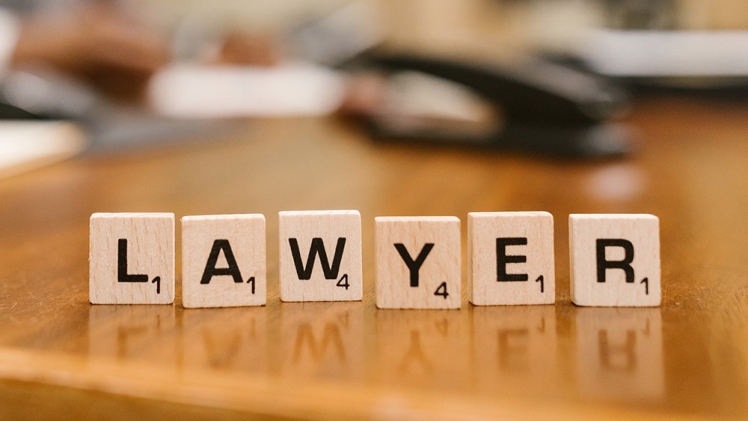One of the oldest and most revered professions in the world is law. Lawyers, also known as attorneys or legal practitioners, play a crucial role in upholding justice, interpreting laws, and protecting the rights of individuals and institutions. Whether representing clients in courtrooms or advising corporations on regulatory compliance, lawyers are indispensable to the functioning of society. The various types of lawyers, their roles and responsibilities, the educational path to becoming a lawyer, challenges in the profession, and the impact of technology on contemporary legal practice are all examined in this comprehensive overview of the profession.
Who Are Lawyers?
A lawyer is a professional who is qualified to offer legal advice and represent individuals, companies, or government agencies in legal matters. Criminal, civil, corporate, constitutional, and family law are just a few of the many areas of law in which lawyers can practice. Their primary role is to ensure that their client’s legal rights are protected and that justice is served.
Lawyers are often seen as problem-solvers. They research laws, examine legal issues, prepare legal documents, and argue cases in court. They must be able to solve problems in the real world and have a solid grasp of legal theory. Depending on their area of specialization, lawyers can work in litigation, transactional work, legal consultancy, or advocacy.
Types of Lawyers
There are numerous specializations within the legal field. The following are some of the most prevalent kinds of lawyers:
Criminal Lawyers
Cases involving theft, assault, murder, and white-collar crimes are handled by criminal lawyers. They could be prosecutors, which represent the state, or defense attorneys, which represent the accused. Case investigations, evidence gathering, witness cross-examination, and court arguments are all part of their work.
Civil Lawyers
Non-criminal disputes like property disputes, contract violations, and tort claims (like personal injury) are handled by civil lawyers. Through civil litigation or settlement, they assist clients in obtaining compensation or enforcing agreements.
Corporate Counsel Corporate
Lawyers advise businesses on their legal obligations, rights, and responsibilities. They help draft contracts, manage mergers and acquisitions, and ensure regulatory compliance.
Family Lawyers
Family lawyers handle cases related to domestic relationships, such as divorce, child custody, adoption, and alimony. Their work often requires a compassionate approach due to the emotional nature of these cases.
Lawyers for the Constitution
These lawyers concentrate on cases involving constitutional interpretation. They often handle human rights cases and may work with civil rights organizations or government bodies.
Environmental advocates Environmental
Lawyers specialize in laws related to natural resources, pollution, and sustainability. In matters of environmental regulations, they may represent individuals, businesses, or government agencies.
Educational Path to Becoming a Lawyer
It takes a lot of time and effort to become a lawyer, and there are typically several stages to the process of Undergraduate Education. Aspiring lawyers first complete a bachelor’s degree in any field, although majors in political science, history, or philosophy are common due to their analytical nature. School of Law After earning a bachelor’s degree, students must attend law school, where they typically spend three years studying subjects such as constitutional law, contracts, torts, property law, and criminal law.
Continuing Legal Education
Even after becoming licensed, lawyers must stay up to date with changes in the law. To keep a legal license, many jurisdictions require ongoing education. Sure! Here’s a 1500-word article about the legal profession, structured heading by heading, and paragraph by paragraph to ensure clarity and flow.
The Legal Profession:
The legal profession is one of the oldest and most respected in the world. The upholding of justice, interpreting laws, and safeguarding of individuals’ and institutions’ rights are all important responsibilities of lawyers, who are also known as attorneys or legal practitioners. Lawyers are essential to the functioning of society, whether they are advising businesses on regulatory compliance or representing clients in court.
This article provides a comprehensive overview of the legal profession, exploring the different types of lawyers, their roles and responsibilities, the educational path to becoming a lawyer, challenges in the profession, and the impact of technology on modern legal practice.
Who Is a Lawyer
A lawyer is a professional who is qualified to offer legal advice and represent individuals, companies, or government agencies in legal matters. Criminal, civil, corporate, constitutional, and family law are just a few of the many areas of law in which lawyers can practice. Their primary role is to ensure that their client’s legal rights are protected and that justice is served.
Day-to-Day Responsibilities
A lawyer’s daily routine can vary significantly depending on their area of practice and the nature of their work. Typical duties include: interacting with clients to learn about their legal problems Drafting and reviewing legal documents such as contracts, wills, and court pleadings
preparing legal opinions and conducting legal research Client representation in court and negotiations working together with other lawyers and expert witnesses In litigation-focused roles, lawyers may spend more time in court, whereas transactional lawyers focus more on document preparation and advising clients behind the scenes.
Challenges Faced by Lawyers
The legal profession, while rewarding, also presents several challenges: High levels of stress Deadlines, client expectations, and the high stakes of legal decisions can lead to significant stress and long working hours.
Work-Life Balance
Balancing personal life with professional responsibilities can be difficult, especially for lawyers in demand
